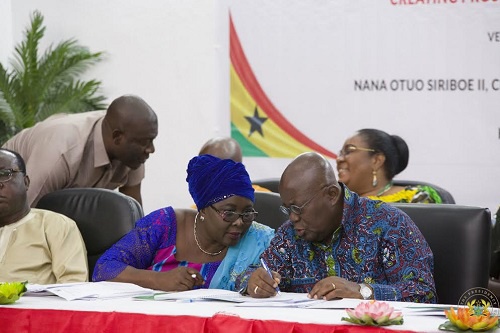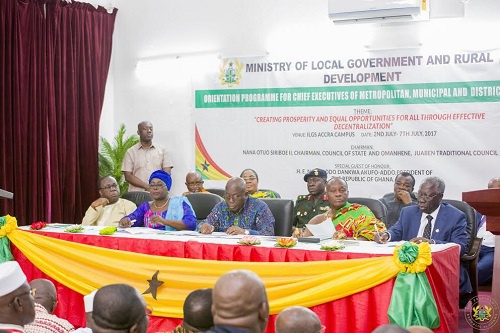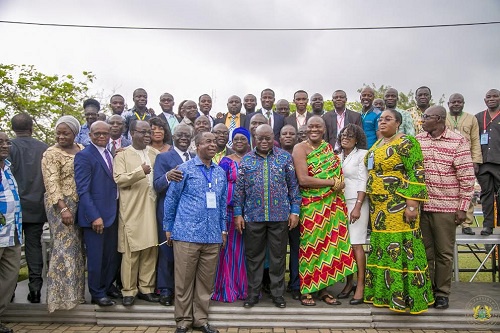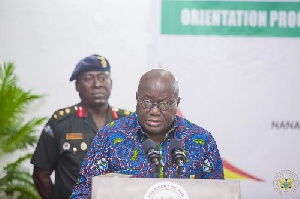The President of the Republic, Nana Addo Dankwa Akufo-Addo says there is nothing to fear in the election of Metropolitan, Municipal and District Chief Executives, as this would, rather, lead to the deepening of the country’s democracy and ensure better accountability.
Reiterating, once again, his and the commitment of his government towards the election of MMDCEs, President Akufo-Addo noted that “I belong in the group that has always advocated for the direct, popular election of Chief Executives.
It is now a Manifesto commitment of the ruling party, the NPP, so you must be aware that it is going to be fulfilled.”
The process for the amendment of the Constitution, he assured, will soon be underway, “which will make you the last batch of Chief Executives to be appointed under the current system.”
President Akufo-Addo made this known on Wednesday, 5th July, 2017, when he addressed an orientation programme organized for the 199 approved MMDCEs by the Ministry of Local Government and Rural Government, at the Institute of Local Government Services, at Ogbojo.

Thus, for current Chief Executives who will be interested in the forthcoming elections under the new system, President Akufo-Addo stressed that “your conduct and performance will determine whether you will earn the confidence of your electorate.
I do not believe there is anything to fear in the direct election of Chief Executives. On the contrary, it should lead to a deepening of our democracy and better accountability. It is time to make it work,” he added.

Good time to be in charge of districts
Stressing to the Chief Executives that this is a good time to be in charge of districts, municipal and metropolitan areas, the President noted that “you have the opportunity to transform the local economy and preside over the creation of jobs for our people.”
This, according to President Akufo-Addo, is because the district is the target for all the programmes (aggressive industrialization and value addition to agricultural produce, modernizing agriculture, improving production and efficiency and achieving food security) government has set and is introducing to grow the economy.
“The Infrastructure for Poverty Eradication Programme (IPEP) will be implemented at the constituency level, where the allocation of the equivalent of one million US dollars annually will be used to finance capital expenditure for infrastructure and other facilities in the localities” he said.
Once established, the Development Authorities for the northern, middle and coastal belts will serve as the primary executing agencies under IPEP to oversee the implementation of the “One Million Dollar One Constituency” programme.

Again, the President stressed that “the ‘One Village One Dam’ policy initiative, like all the other innovative introductions to the economy, are all very much local initiatives. I am hoping that a genuine sense of fair competition will come into the operation of the districts.”
With the coming into effect of these policies, President Akufo-Addo was confident that “we should be able to see the difference in the quality of schools from one district to the other due to the quality of the supervision.”

He continued, “We should be able to judge for ourselves quite soon what one district does with its one million dollars and compare it with what another district does with theirs. It is up to you in this hall to make the 1 district, 1 factory scheme a success.”
The challenge, the President noted, “is very much for the deprived areas to take advantage of these programmes to bring change to your districts. You have the opportunity to change your districts from places where people move from, to places where people move to.
Let your factories thrive and you will soon discover that people will move to your districts, instead of the current position where all your young and strong people move away to Accra and Kumasi.”
General News of Wednesday, 5 July 2017
Source: Flagstaff House Communications Bureau

















